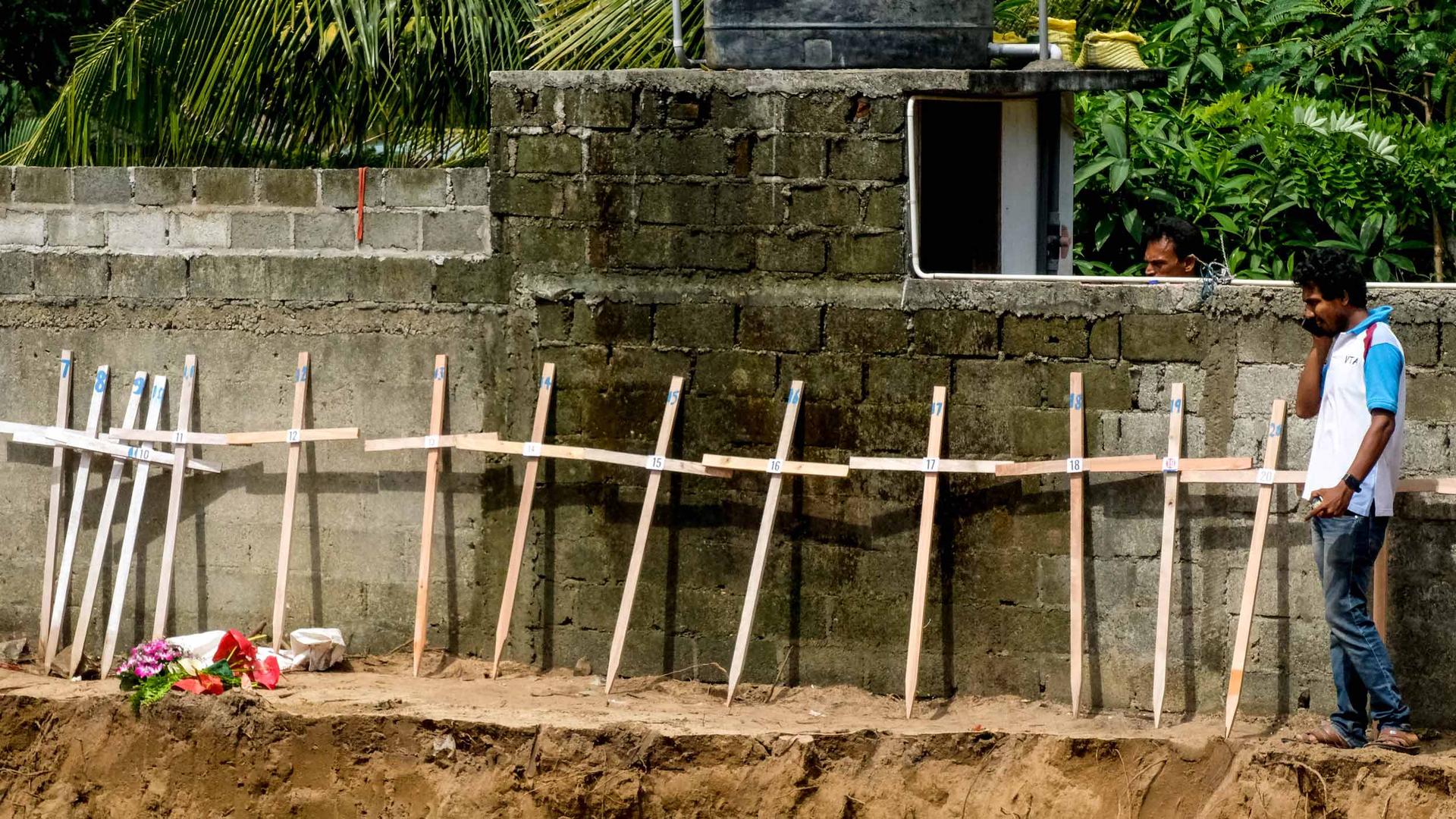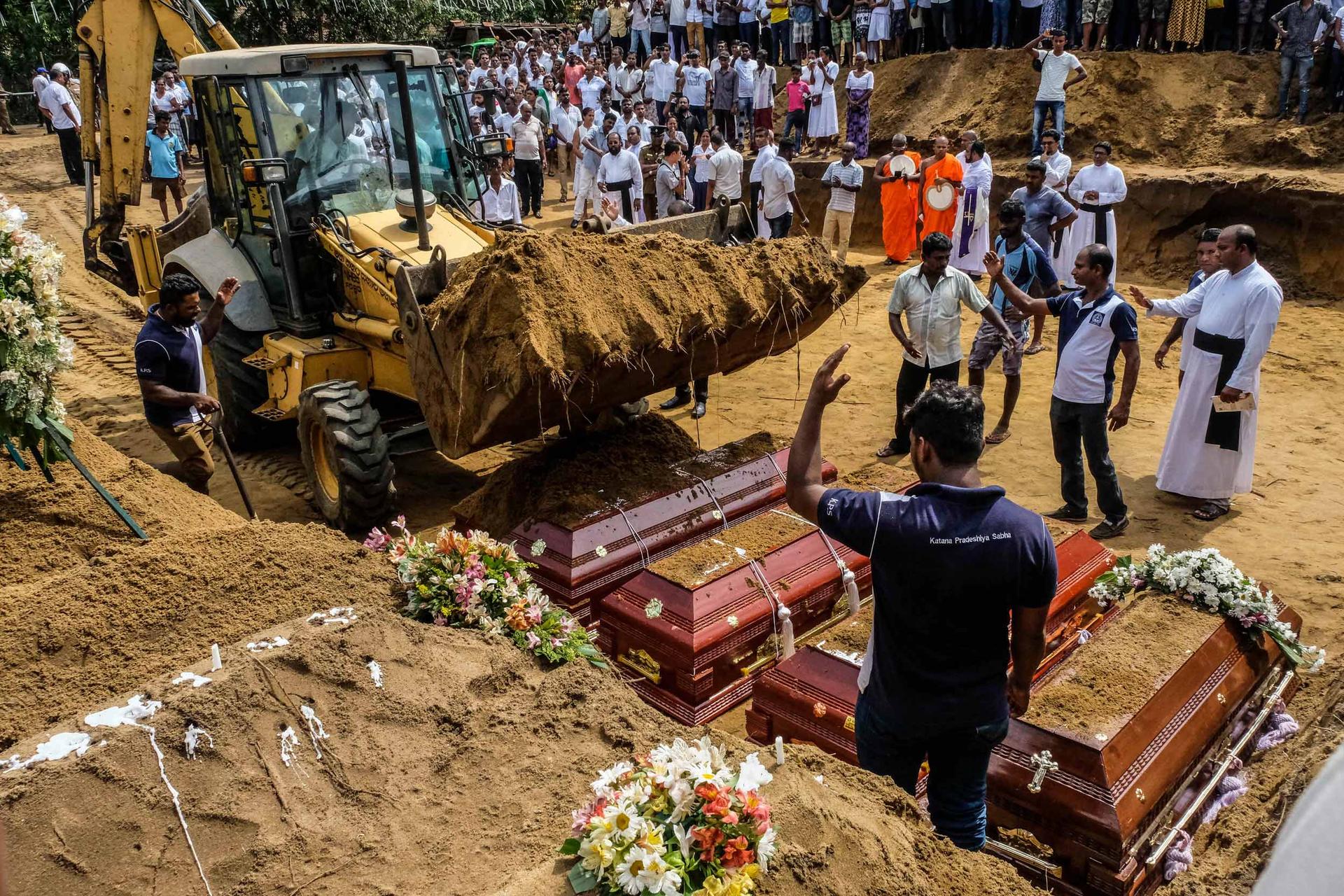Sri Lanka mourns with mass funerals
The village of Katuwapitiya prepares mass graves in the wake of the Easter bombing that killed 100 inside St. Sebastian church.
In the village of Katuwapitiya on the island of Sri Lanka, everyone knows each other. Villagers worshipped together at St. Sebastian church.
And on Easter Sunday, more than 100 of them died together.
Pradeep Thushantha holds a photograph of his family. They’re sitting on the steps in front of the altar at St. Sebastian church, which was attacked by a suicide bomber on Sunday. The photograph is a few years old. It was taken on the day his youngest son was baptized.
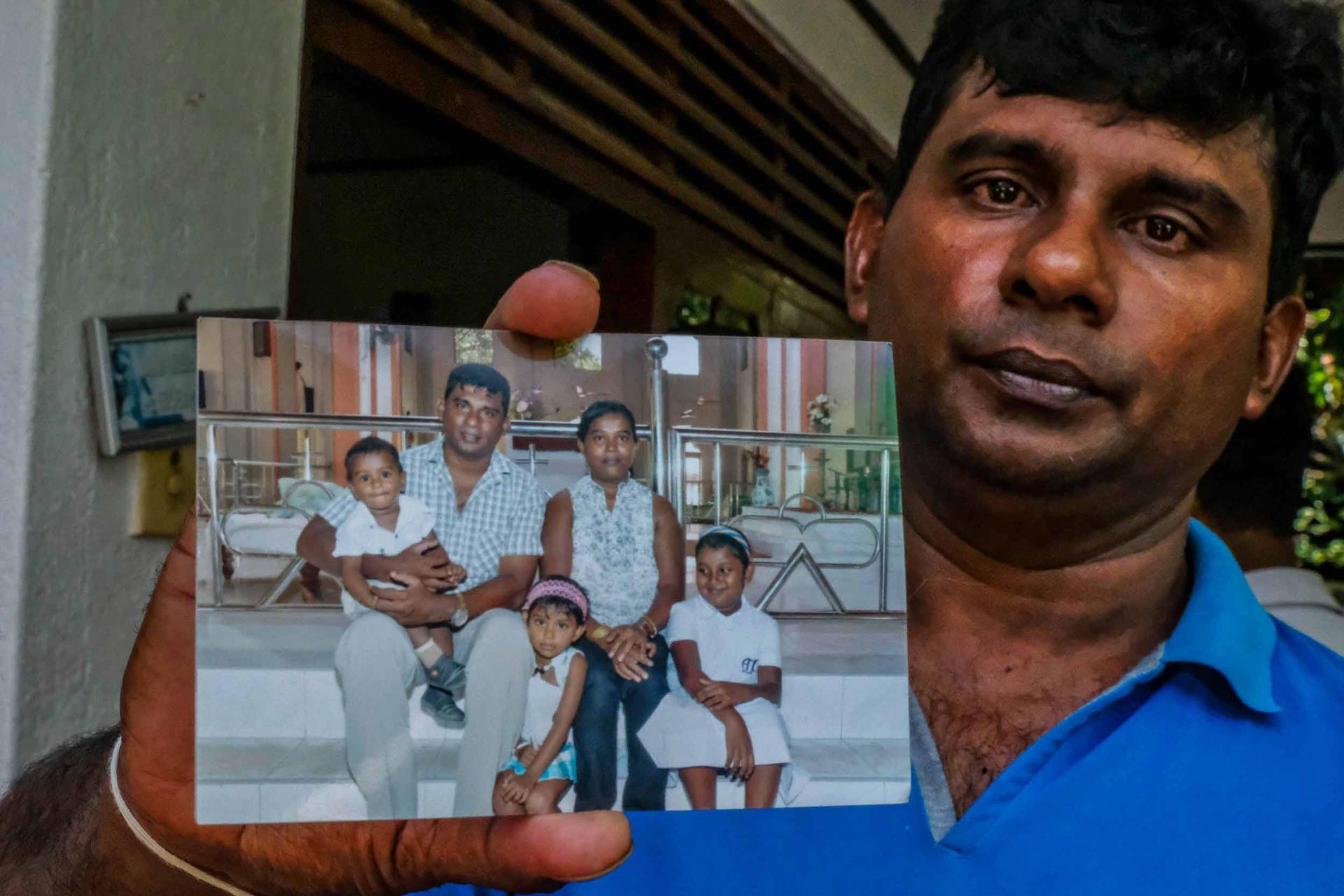
The church is just a few minutes walk from their home. Last Sunday morning, Pradeep’s three children and his wife went to mass.
On Tuesday, they laid in open caskets in his living room.
Related: Sri Lanka blasts were revenge for New Zealand mosque killings
Tuesday is a national day of mourning in Sri Lanka after coordinated attacks on Sunday killed more than 321 and wounded more than 500.
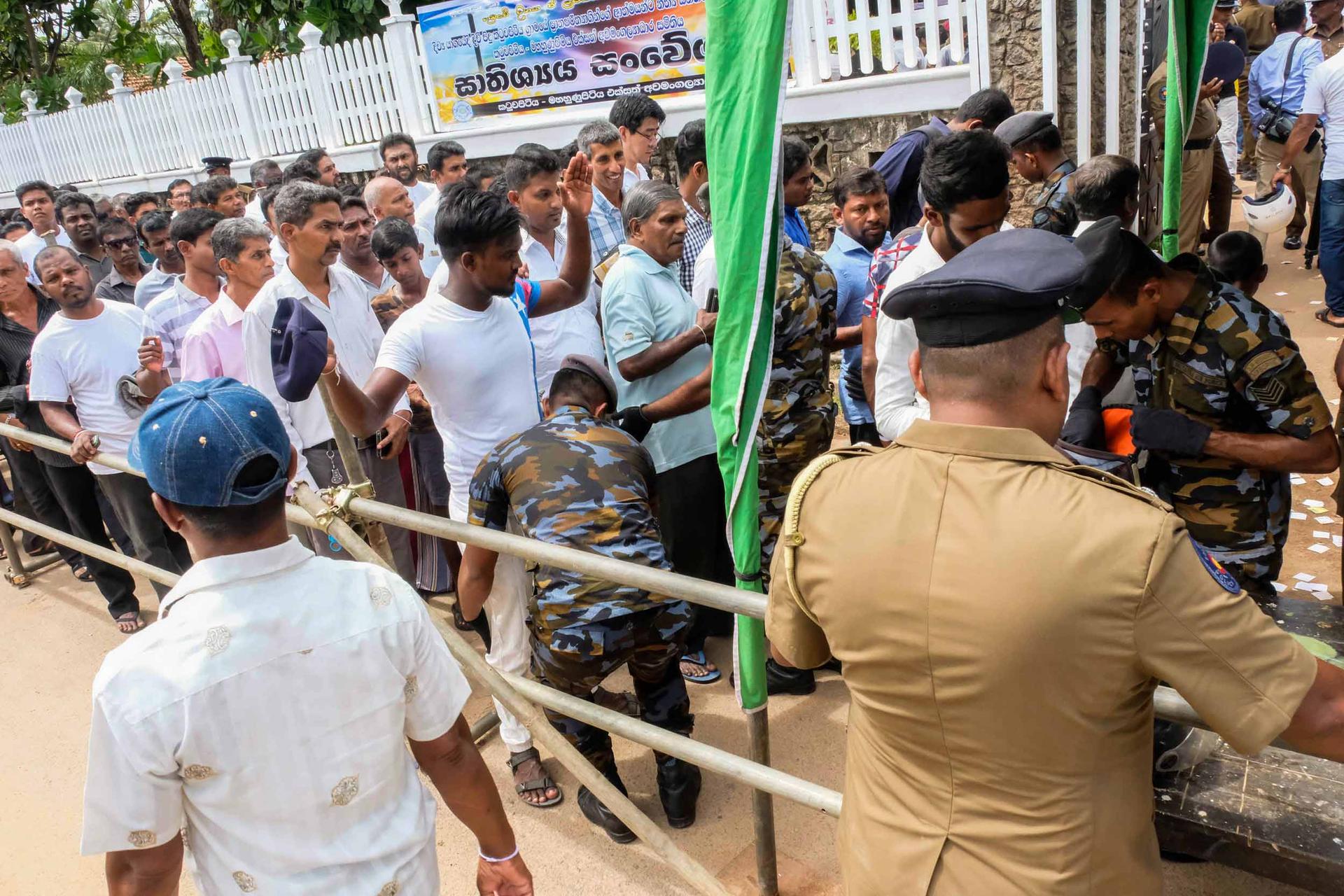
In a statement, ISIS named what it said were the seven who carried out the attacks. It gave no further evidence to support its claim of responsibility.
Earlier, the junior minister for defense, Ruwan Wijewardene, told Parliament two Sri Lankan Islamist groups — the National Thawheed Jama’ut and Jammiyathul Millathu Ibrahim — were responsible for the blasts, which detonated during Easter services and as high-end hotels served breakfast.
Related: Who are Sri Lanka’s Christians?
The church of St. Sebastian is scarred by shrapnel, the pews are shattered and the windows are blown out. But behind the church, under an improvised tent, hundreds of people gathered for a mass.
At the cemetery down the road, a pair of bulldozers have dug a large pit for the mass burial. About 30 victims of the bombings will be buried here on Tuesday.
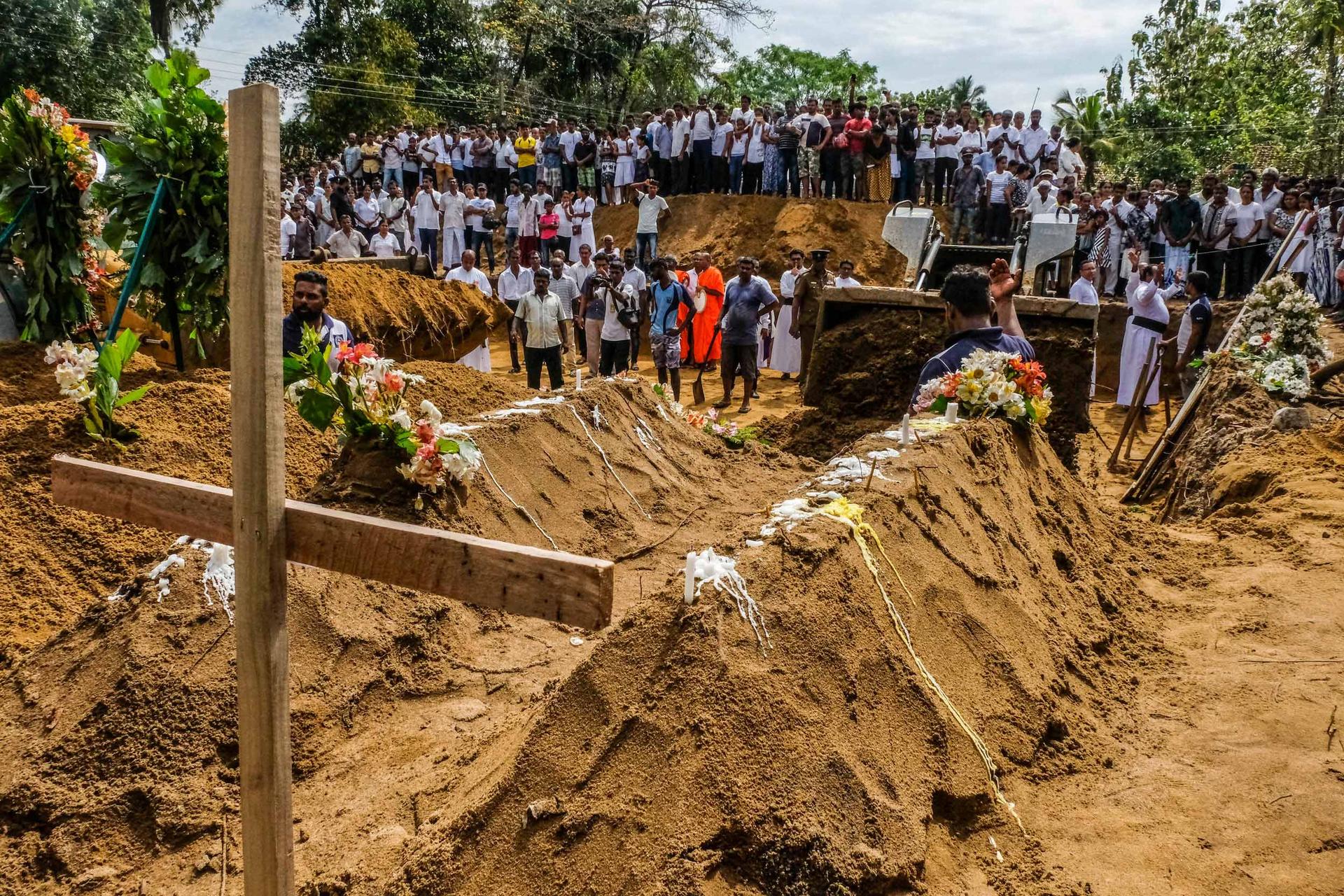
“Still, I think this whole village is recovering from that initial shock; this whole village is in a shock,” said Rev. George Fernando, a Jesuit priest who grew up in the village of Katuwapitiya.
The house next to Thushantha’s belongs to his wife’s brother. He died too, along with his two children.
His wife, Kumari, was the only survivor. She was injured in the blast and spent three days in the hospital. She came home for the first time since the bombing to her family in caskets in her home.
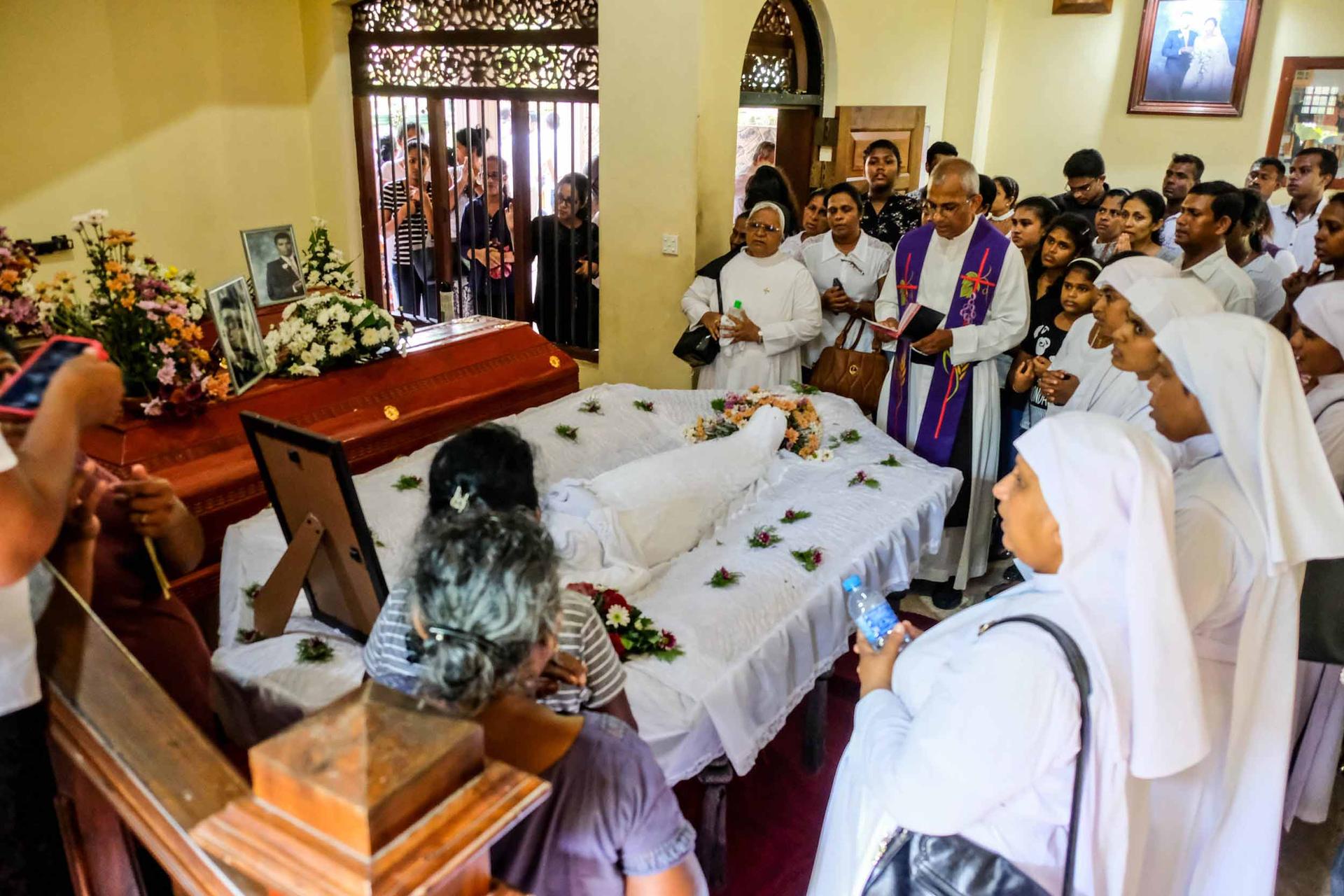
Rev. George Fernando said a prayer over Kumari’s daughter, 19-year-old Sajini, Vimukti, her 15-year-old son, and her husband, Dulip.
Crowds of people from the village came to pay their respects.
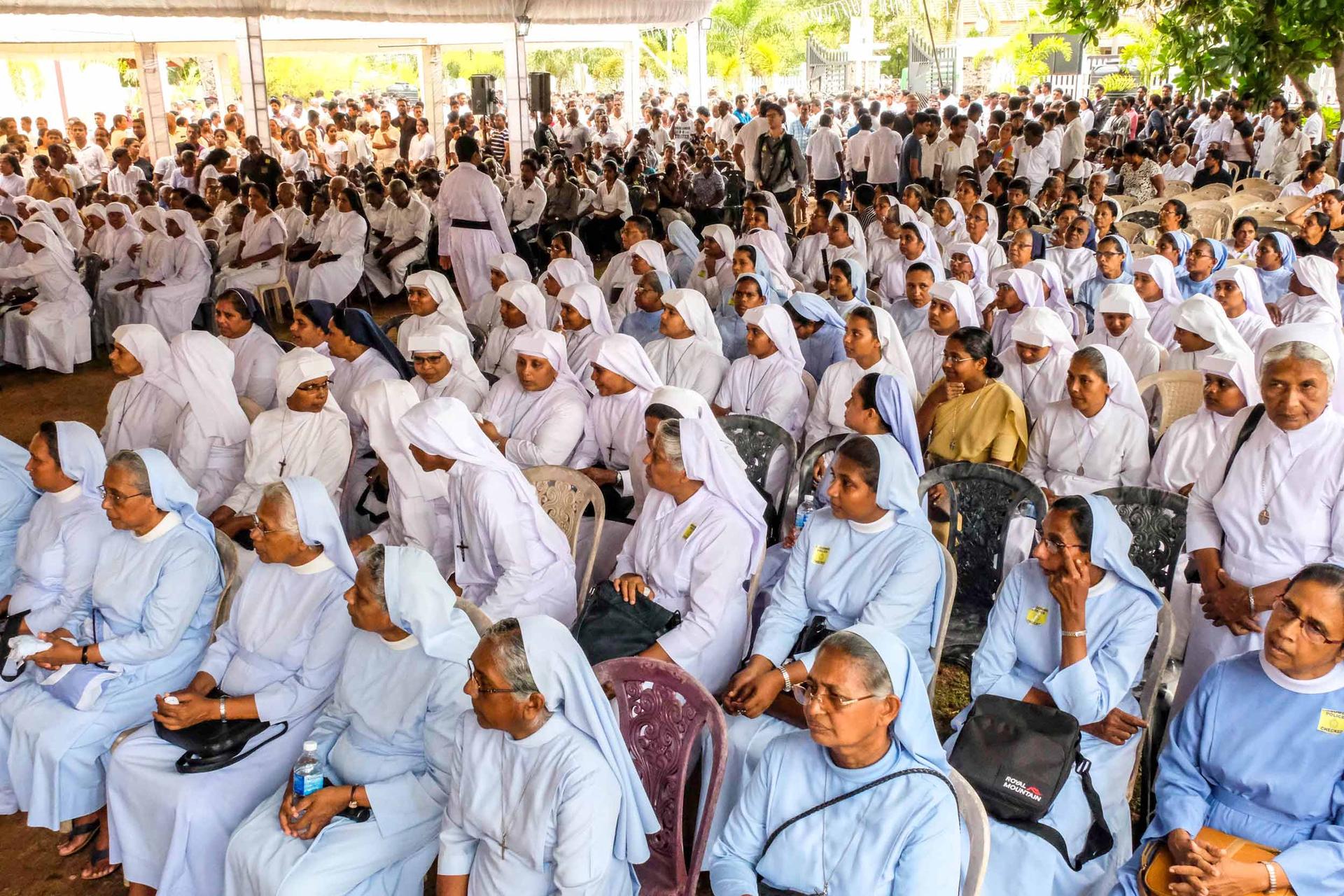
They prayed and sang.
And together, a village in grief said goodbye to dozens of people in a single day.
Reuters contributed to this report.
